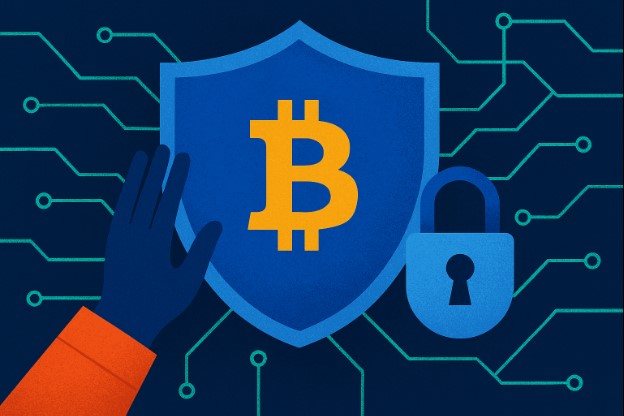In the past year alone, crypto businesses have faced everything from billion-dollar exchange hacks to mass data leaks and targeted phishing attacks. Funds have been frozen, wallets compromised, and user information sold on the dark web. Even well-known platforms aren’t immune, this is confirmed by the incidents with Coinbase and Bybit. And the risks keep growing.
In this article, BitHide team shares five practical tips to help businesses protect their crypto infrastructure, reduce exposure, and stay in full control of their assets.
How to Protect Your Crypto: Key Tips for Business
1. Use Non-Custodial Solutions
With non-custodial wallets, only you hold the private keys. Your assets and data stay under your control — not in the hands of a third party. This drastically reduces the risk of freezes, leaks, or insider breaches that custodial platforms are vulnerable to.
2. Protect Your IP Address
When your wallet connects to the blockchain, your real IP address is exposed to a public node, often run by criminals or hackers. Once they log your IP address, they can link it to your wallet and start tracing every transaction you’ve made.That’s how they can track your wallet — and you.
VPN and Tor are not enough to protect your wallet’s real IP address: VPN user data often leaks to the dark web. And Tor connections are often blocked.
Choose crypto infrastructure with automatic IP address masking. For example, the BitHide crypto wallet for businesses uses a unique technology that changes the IP address multiple times. This makes it nearly impossible for anyone to trace the real IP address.
3. Run AML Checks on Incoming Funds
Accepting crypto from unknown sources leads to asset freezes. Some crypto may be linked to fraud or sanctioned wallets. Use gateways with built-in AML screening to assess the risk of each transaction before funds reach your balance.
4. Separate Access Levels for Team Members
Not every employee needs full access to the system. Limiting permissions minimizes the impact of insider threats or human error. Set role-based access: some employees can view reports, others approve payments — nothing more.
As the Coinbase case showed, internal access is often the weakest point. In May 2025, attackers bribed third-party support staff and gained access to sensitive customer data. They used that information to launch phishing campaigns and trick users into transferring funds. The exchange’s losses were estimated at $200,000 to $400,000.
5. Don’t Reuse the Same Address
Many companies use a single, permanent address to collect incoming payments and manage their funds. But this setup creates a clear traceable pattern. Malicious actors can easily monitor that address and estimate your company’s total turnover.
To avoid this, use crypto payment solutions that generate one-time intermediate addresses for each transaction. This breaks the link between payments and keeps your financial activity private.
How to Choose the Right Non-Custodial Solution
Not all non-custodial solutions offer the same level of control and security. When choosing one for your business, make sure it allows you to host the software on your own infrastructure and manage private keys locally.
Look for features like flexible compliance settings, IP address masking, encrypted backups, and built-in AML tools. A strong non-custodial platform like BitHide should not only protect your funds but also give you full control over how your crypto system operates.
